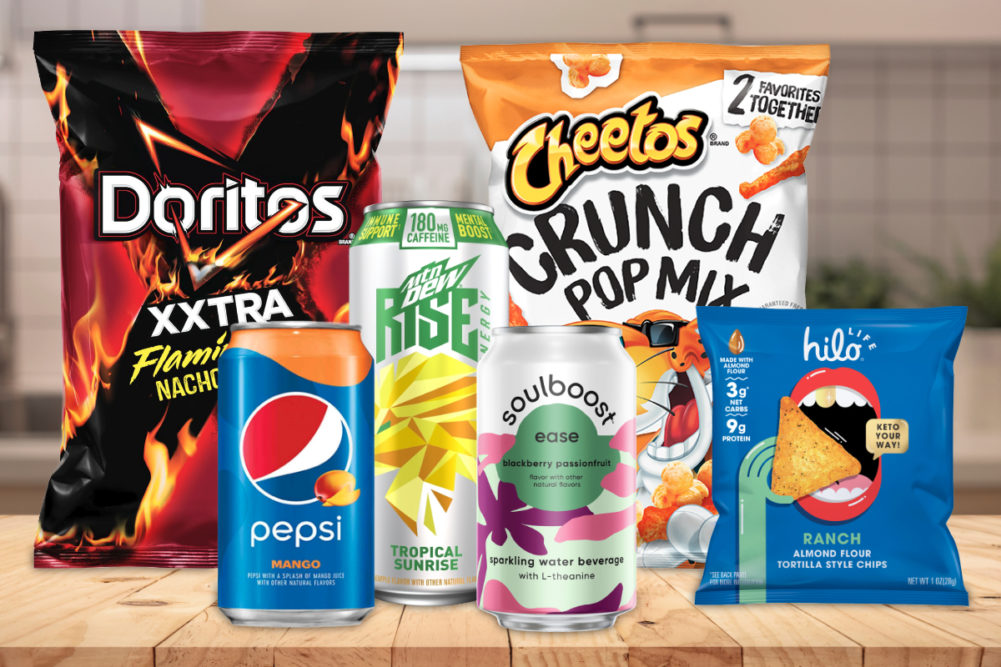PURCHASE, NY. — Snack sales kept surging. Beverage sales bounced back. Net revenue overall rose 21% for PepsiCo, Inc. in the second quarter, sparking the company to upgrade its fiscal-year outlook.
Executives of the Purchase-based company now expect full-year organic revenue to increase 6%, up from a previous guidance of mid-single-digit growth, and core constant currency to increase 11%, up from a previous guidance of high-single-digit growth.
Net income attributable to PepsiCo was $2.36 billion, equal to $1.71 per share on the common stock, in the quarter ended June 12, which was up 43% from $1.65 billion, or $1.19 per share, in the previous year’s second quarter. Net revenue rose to $19.22 billion from $15.95 billion. Organic revenue growth was nearly 13%.
PepsiCo’s share price on the Nasdaq closed at $152.96 on July 13, the day second-quarter results were reported. It was a 2.3% gain from a close of $149.51 on July 12.
In the Frito-Lay North America segment, operating profit increased 8% to $1.38 billion, primarily reflecting an impact of 9 percentage points of lower charges taken as a result of the COVID-19 pandemic, net revenue growth and productivity savings. Net revenue rose 7% to $4.55 billion, primarily driven by effective net price and organic volume growth.
“I mean, the biggest highlight for me is that the resilience of our snack business, right?” said Ramon L. Laguarta, chief executive officer of PepsiCo, in a July 13 earnings call. “So, if you think about last year, it grew high single digits. This year, it's growing high single digits. That is extraordinary if you think about the shift in consumer behavior, how our portfolio is able to adapt to more of an in-home consumption pattern or a more of an away-from-home consumption part.”
Unit volume in FLNA grew 1%, primarily reflecting double-digit growth in variety packs. Net revenue growth came from key brands such as Lay’s, Doritos and Ruffles as well as smaller brands such as PopCorners, Sun Chips and Miss Vickie’s.
In PepsiCo Beverages North America, operating profit more than doubled to $809 million, reflecting net revenue growth, an impact of 33 percentage points in lower charges taken as a result of the COVID-19 impact and productivity savings. Net revenue increased 24% to $6.16 billion, primarily driven by an increase in organic volume and effective net pricing. Unit volume increased 16% due to a 12% increase in carbonated soft drink volume and a 20% increase in non-carbonated beverage volume.
“Obviously, the beverage category is benefiting from the change of patterns and behaviors of consumers, and it was very negatively affected in the away-from-home consumption last year,” Mr. Laguarta said.
In Quaker Foods North America, operating profit plunged 34% to $128 million, primarily reflecting the net revenue performance and certain operating cost increases. Net revenue dropped 13% to $575 million, primarily reflecting a decrease in organic volume. Unit volume declined 21%, primarily driven by double-digit decreases in oatmeal, pancake syrup and mix, and ready-to-eat cereal.
Internationally, PepsiCo posted organic revenue growth of 22% in beverages and 11% in snacks.
Hugh F. Johnston, executive vice president and chief financial officer, spoke about inflationary pressure in the earnings call.
“We insulate ourselves to some degree based on our forward buying program, and that has actually helped us clearly this year,” he said. “There'll be a bit more pressure in the back half (of the year), but at the same time, as you know, we tend to take pricing after Labor Day in both of our businesses, and I think you would expect to see that pattern continue.
“So, is there somewhat more inflation out there? There is. Are we going to be pricing to deal with it? We certainly are.”
Over the first two quarters of the fiscal year, PepsiCo companywide posted net income of $4.07 billion, or $2.95 per share, which was up 36% from $2.98 billion, or $2.15 per share. Net revenue rose 14% to $34.01 billion from $29.83 billion.





